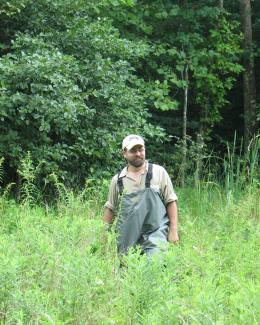Abstract
Background and aims
Plant-soil feedbacks are the result of multiple abiotic and biotic mechanisms. However, few studies have addressed how feedbacks vary based on abiotic context or attempted to identify microbiota responsible for feedbacks. We investigated whether plant-soil feedbacks of an ectomycorrhizal tree (Quercus macrocarpa) varied based on soil nutrient status and whether fungal community composition and diversity could explain feedback patterns.
Methods
We inoculated Q. macrocarpa seedlings with field-sampled soils taken from five soil origins – including heterospecific and conspecific trees and an old field – which were profiled using fungal DNA metabarcoding.
Results
Despite finding that soils associated with different hosts harbored distinct fungal communities and that fungal communities were predictive of plant growth, we did not find any significant plant-soil feedbacks regardless of fertilization status. We did find that the growth promotive effect associated with ectomycorrhizal OTU diversity was weakened with fertilization, suggesting context-dependent relations between plant growth and a guild of fungal mutualists.
Conclusions
Our results demonstrate that the host-specific accumulation of functionally important soil microbes is not always sufficient to drive observable plant-soil feedbacks. Our data provide support for a role for ECM fungal diversity in mediating plant growth responses, though it is unclear whether this effect is direct or indirect.


